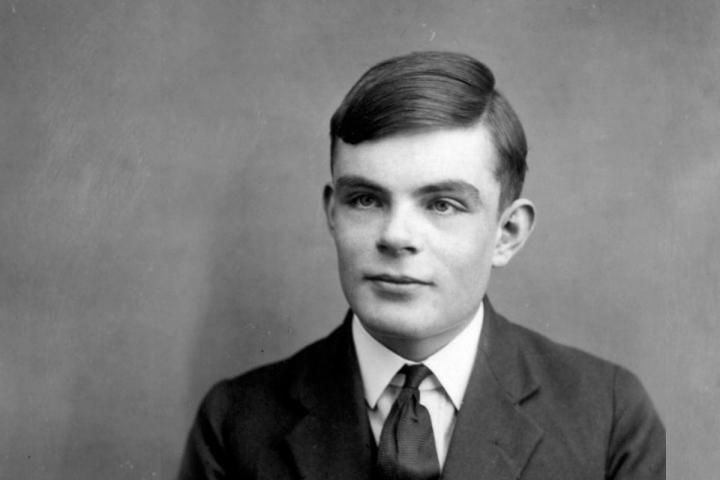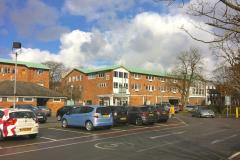
Alan Turing the World War II code breaker who lived in Wilmslow looks set to be granted a posthumous pardon.
The Government indicated they were prepared to grant a pardon to the famous mathematician, who received a criminal conviction for having a sexual relationship with another man, after the Alan Turing (Statutory Pardon) Bill received a second unopposed reading in the House of Lords on Friday, 19th July.
Alan Turing was most famous for breaking the German Enigma codes during the Second World War. In 1952, he was convicted of 'gross indecency' with another man and was forced to undergo chemical castration. His security privileges were also withdrawn meaning he could no longer work for the UK Government Communications Headquarters. Two years later, he killed himself with cyanide, aged just 41.
Liberal Democrat peer Lord Sharkey brought forward the bill and campaigned for a pardon, having been taught mathematics by Turing's friend Robin Gandy, whilst an undergraduate at Manchester University in the 1960s.
Lady Trumpington who worked as part of the team at Bletchley, spoke during the debate in the House of Lords on Friday.
She told peers "The block I worked in was devoted to German naval codes. Only once was I asked to deliver a paper to Alan Turing, so although I knew that he had invented "Colossus", which turned the war around in our favour, I cannot claim that I knew him. However, I am certain that but for his work we would have lost the war through starvation."
Baroness Dean of Thornton-le-Fylde added "We owe a huge debt to Alan Turing, and debts have to be paid. Ours has been too long in the paying and now is the time to do it. It is important that we do it."
Lord Ahmad of Wimbledon, Government whip told peers "If nobody tables an amendment to this Bill, its supporters can be assured that it will have speedy passage to the House of Commons. If no amendments are tabled for Committee, there does not need to be a Report stage, so the Government can table Third Reading by the end of October."
Lord Sharkey responded "This seems to be a situation in which the merits of the argument are slowly permeating government attitudes and thinking. Perhaps they will resolve into a clear and decisive outcome before too long. I very much hope that the Government will continue to think carefully about Turing and others who were similarly convicted, and that the merits of a pardon and disregard will seem to the Government to be increasingly compelling. I hope that when the Bill reaches the Commons, the Government will be, at the very worst, sympathetically neutral to it."
This represents a change of heart because the Government rejected a request to officially pardon the World War II code breaker last year, arguing that a posthumous pardon was not considered appropriate as Alan Turing was properly convicted of what at the time was a criminal offence. He would have known, they argued, that his offence was against the law and would be prosecuted.
In 1999, the then Prime Minister, Gordon Brown issued an apology for the "appalling"and "utterly unfair" treatment he received.
In 1999, Time magazine named Turing as one of the 100 most important people of the 20th century and last year, in the centenary of Turing's birth, a large number of events took place all over the world celebrating Turing's life and his achievements. More than 40 countries were involved in those celebrations which included an exhibition on his work at the Science Museum. The Royal Mail issued a commemorative stamp celebrating Alan Turing in February 2012.
The University of Surrey has honoured Turing, by creating a road and having a statue named after him. There is also now a statue of Turing in Manchester and in Paddington, where he lived for a while.
Next year there will be the world premiere of a new choral work at the Barbican celebrating his life, composed by James McCarthy and commissioned by the Hertfordshire Chorus. This will be followed by a film of Turing's life in which Benedict Cumberbatch is to play Turing and Keira Knightley is to play his girlfriend.










Comments
Here's what readers have had to say so far. Why not add your thoughts below.
I'm not sure a pardon in 2013 acheives much, but better a pardon than no pardon, I suppose.
However I have long thought that Wilmslow has done little to celebrate Turing's residence here; just a blue plaque on his former house as far as I know. Why not take this opportunity to re-name a major local road after him? Perhaps a section of the Wilmslow bypass?
I totally understand why Lord Sharkey is doing this which I believe is to honour and respect a man who made a very significant contribution to the war effort.
However, we have to remember that this was a criminal offence at the time and most likely that more people than just Alan Turing were found guilty in a court of law for committing the offence he was found guilty of.
I would be much more in favour of this pardon if it were to pardon all people found guilty of this criminal offence rather than what I assume is just one man (Alan Turing).
I wonder if the bill would see a clear passage through parliament if this were the case.
Dear Mr Redgard,
As I pointed out in my speech on Friday, my original objective was to obtain a disregard for all those convicted under the Labouchere Amendment and other Acts but now dead. This remains my objective.
I set out the case in detail in my speech, which you can access here:
http://bit.ly/12RsGxX
Yours,
Lord Sharkey
House of Lords
SW1A 0PW
Direct Line 020 7219 4169
Research Assistant 07984 599 277
Switchboard 020 7219 5353